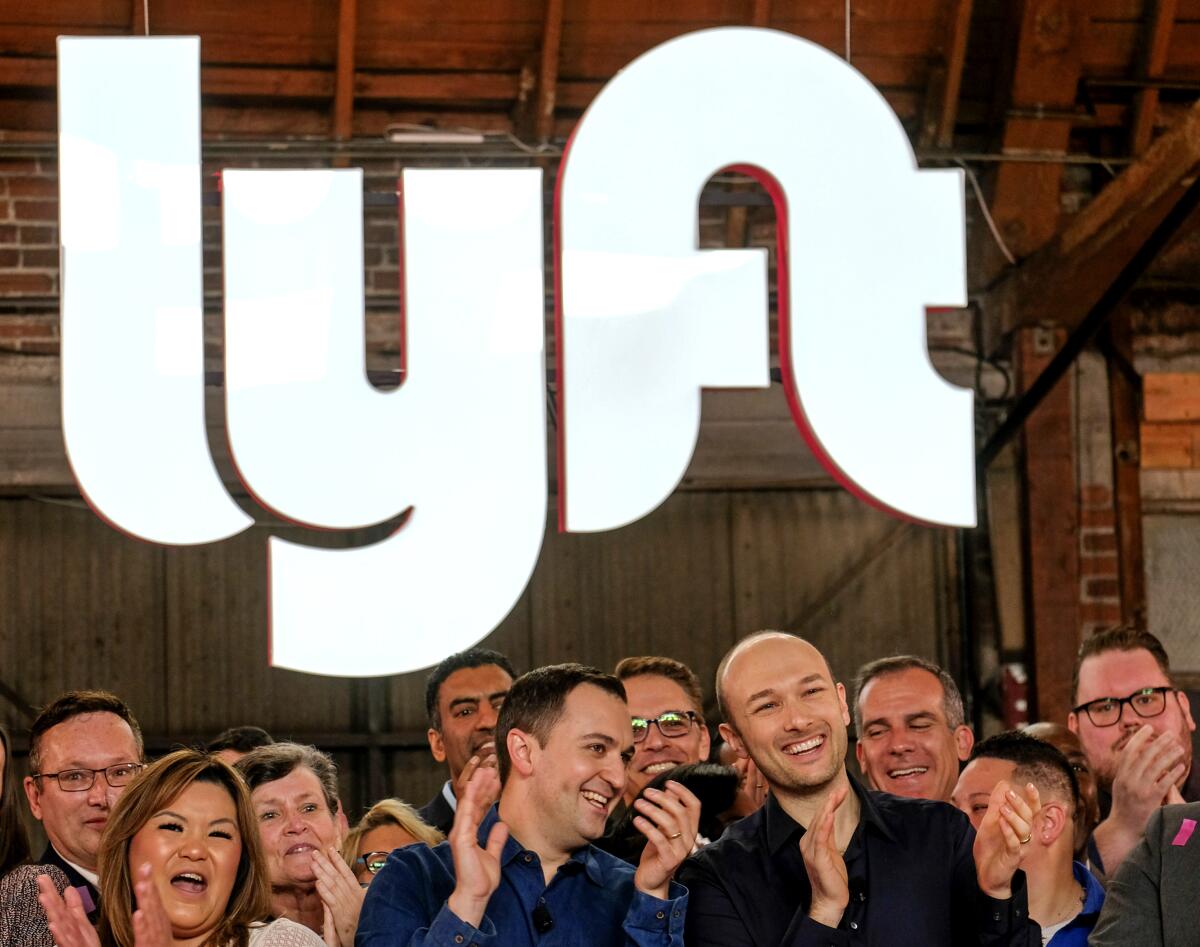Lyft names a new CEO in a move that could set the stage for a sale

Lyft Inc. tapped David Risher to be its new chief executive, replacing co-founder Logan Green and setting the stage for a potential sale as the ride-hailing company struggles to compete with bigger rival Uber Technologies Inc.
Green and co-founder and current President John Zimmer will step back from daily operations after more than a decade with the company but remain on the board, Lyft said in a statement Monday.
Risher, 57, who has been a Lyft board member since 2021, has held previous roles as head of product at Amazon.com Inc. and as a general manager at Microsoft Corp. before launching his own startup called Worldreader. He will take over April 17.
“The decision suggests that Lyft is in a tough competitive position, given operational challenges vs. larger rival Uber,” wrote Bloomberg Intelligence analyst Mandeep Singh. “Amid a risk of cash burn and market-share loss, we think Lyft may explore strategic options, including a sale.”
Founded in 2012, three years after its hometown rival, San Francisco-based Lyft has increasingly been marginalized by Uber, which accounted for 74% of the U.S. consumer ride-share sales at the end of December, while Lyft had 26%, according to Bloomberg Second Measure.
The seemingly random firing of drivers is one way ride-hail companies keep workers powerless. Can’t they bear the cost of humane engagement?
Uber has benefited from expanding into food and beverage delivery, which helped it thrive during the pandemic when demand for shared rides plummeted.
It also lured drivers with incentives and bonuses during a severe shortage of workers as the economy reopened in 2021. Lyft, meanwhile, has been slow to recover from the pandemic, which caused high prices and long wait times for customers.
In January, Lyft reduced base ride prices to keep up with a similar move by Uber. In October, the company increased the service fee riders pay directly to cover higher insurance costs. Those expenses are expected to continue to rise. Rather than have riders bear the burden, Lyft has been willing to take the hit to profits instead, Zimmer said in February.
Lyft has made efforts to cut costs, shedding more than 700 employees last year. Last month, the company forecast dramatically lower profits in the current quarter, sending its shares plunging. Lyft’s earnings stood in stark contrast to rival Uber, which saw ride bookings soar by 31% in the fourth quarter, surpassing its delivery bookings for the first time since the pandemic.
“All founders eventually find the right moment to step back and the right leaders to take their company forward,” Green said in the statement. “David has the right energy, ambition and experience to lead Lyft into the future.”
In a blog post, Green said he will spend more time with his family and explore new ways to help protect the planet.
Lyft’s shares jumped about 3% in extended trading in New York after news of the new CEO. They are down about 13% so far this year after plunging 74% in 2022.
To increase customer retention, the company has worked to expand its subscription product, Lyft Pink, and has partnered with Grubhub to offer members a complimentary subscription to the food-delivery platform.
Lyft also launched an advertising unit last year to tap higher-margin revenue, a strategy other on-demand platforms including Uber, Instacart Inc. and DoorDash Inc. have implemented.
In a corporate filing, Lyft said it would pay Risher an annual salary of $725,000 and a signing bonus of $3.25 million.
More to Read
Inside the business of entertainment
The Wide Shot brings you news, analysis and insights on everything from streaming wars to production — and what it all means for the future.
You may occasionally receive promotional content from the Los Angeles Times.











